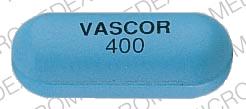Bepridil Interactions
There are 582 drugs known to interact with bepridil, along with 8 disease interactions, and 3 alcohol/food interactions. Of the total drug interactions, 231 are major, 336 are moderate, and 15 are minor.
- View all 582 medications that may interact with bepridil
- View bepridil alcohol/food interactions (3)
- View bepridil disease interactions (8)
Most frequently checked interactions
View interaction reports for bepridil and the medicines listed below.
- Acetaminophen-odan (acetaminophen)
- Acetylsalicylic Acid (aspirin)
- Alprazolam Intensol (alprazolam)
- Aprodine (pseudoephedrine / triprolidine)
- ASA-Free (trolamine salicylate topical)
- Atrovent (ipratropium)
- Augmentin (amoxicillin / clavulanate)
- Benadryl (diphenhydramine)
- Bentyl (dicyclomine)
- Bumex (bumetanide)
- Calciferol (ergocalciferol)
- Carboplatin Novaplus (carboplatin)
- Cardene SR (nicardipine)
- Clotrimazole Troche (clotrimazole)
- Colace (docusate)
- Coreg (carvedilol)
- Cystex (benzoic acid / methenamine / sodium salicylate)
- Depakote ER (divalproex sodium)
- Dextrose (glucose)
- Digox (digoxin)
- Dilacor XR (diltiazem)
- Dilantin (phenytoin)
- Dulcolax (bisacodyl)
- DynaCirc CR (isradipine)
- Flonase (fluticasone nasal)
- Florinef (fludrocortisone)
- Iron Gluconate (ferrous gluconate)
- KCl (potassium chloride)
- Klonopin (clonazepam)
- Lopressor (metoprolol)
Bepridil alcohol/food interactions
There are 3 alcohol/food interactions with bepridil.
Bepridil disease interactions
There are 8 disease interactions with bepridil which include:
- agranulocytosis
- arrhythmias
- CHF
- electrolyte imbalance/hypokalemia
- MI
- bradyarrhythmia/AV block
- cardiogenic shock/hypotension
- liver disease
More about bepridil
- Compare alternatives
- Side effects
- Dosage information
- During pregnancy
- Drug class: calcium channel blockers
Related treatment guides
Drug Interaction Classification
| Highly clinically significant. Avoid combinations; the risk of the interaction outweighs the benefit. | |
| Moderately clinically significant. Usually avoid combinations; use it only under special circumstances. | |
| Minimally clinically significant. Minimize risk; assess risk and consider an alternative drug, take steps to circumvent the interaction risk and/or institute a monitoring plan. | |
| No interaction information available. |
See also:
Further information
Always consult your healthcare provider to ensure the information displayed on this page applies to your personal circumstances.


